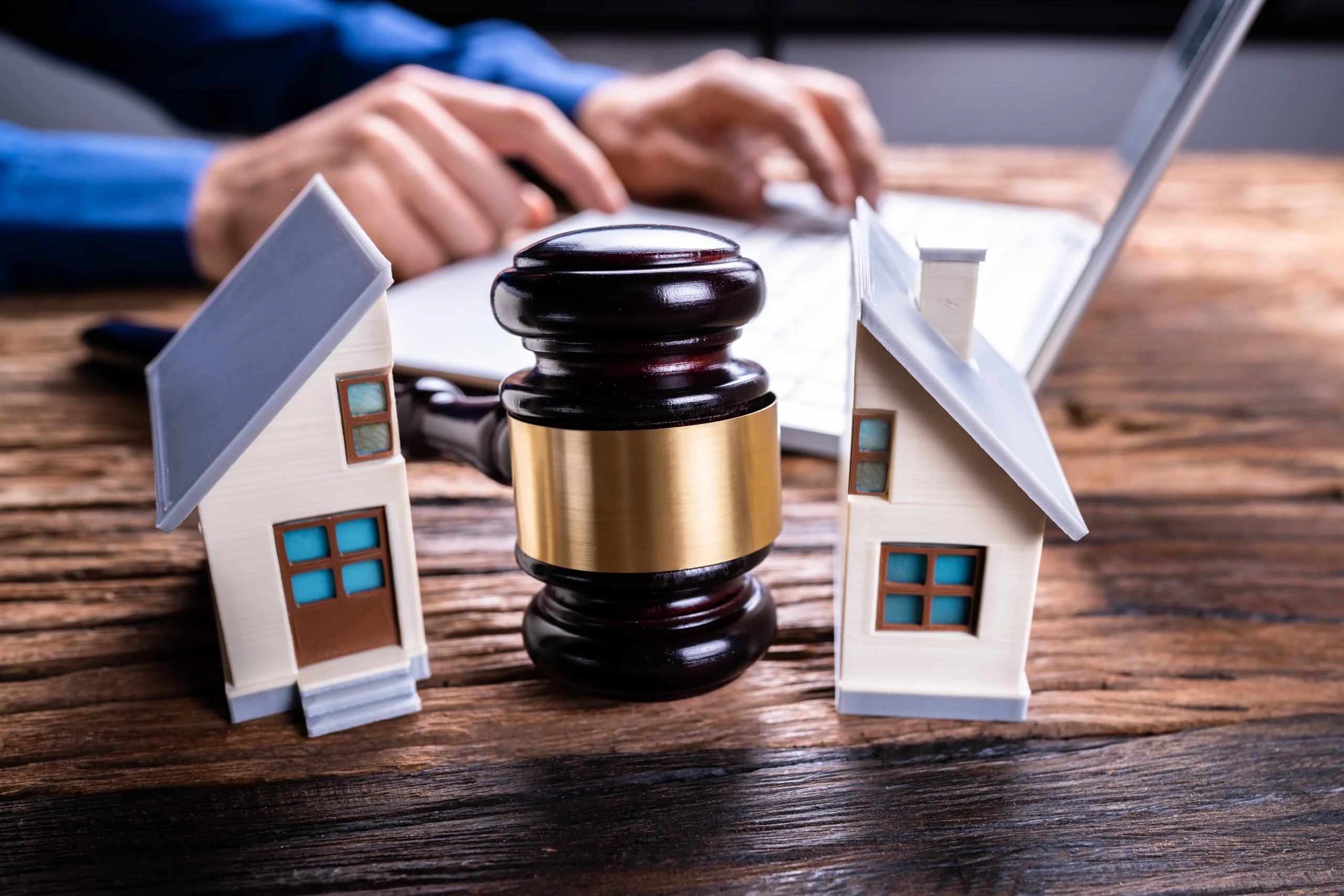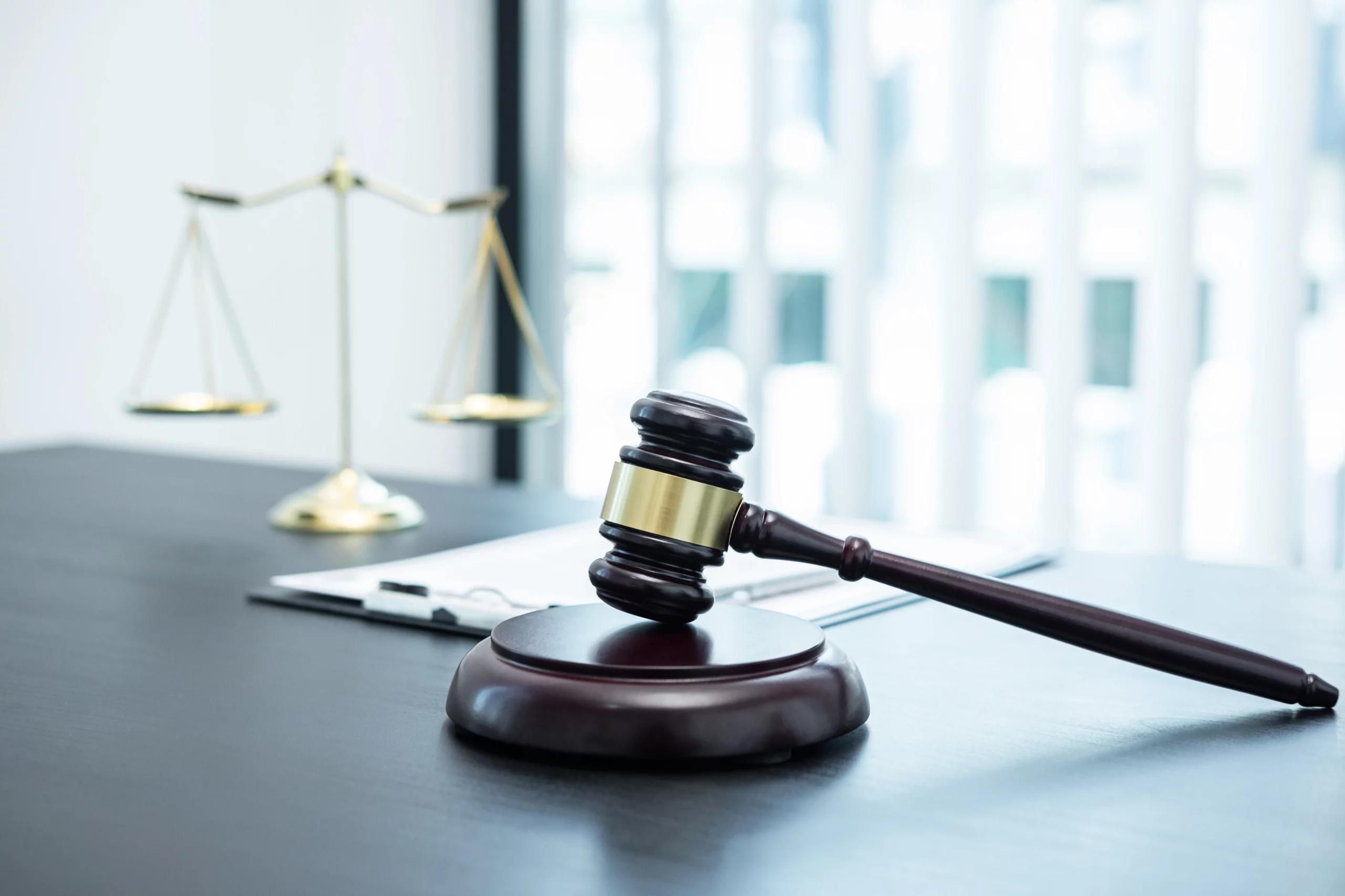Residential & Home Accident Lawyers | Slip, Trip, and Falls
The Best Premises Liability Accident Law Firm
Premises Liability > Accidents > Home & Residential
It’s not as often as you imagine for serious injuries in the home. Injuries on private property send almost 10 million people to the emergency department annually. About 6 million insurance claims are filed annually due to injuries sustained in the home. The victims seek compensation for their medical bills, time off work, pain, suffering, mental anguish, and other losses and damages.
INJURIES SUFFERED BY VISITORS TO PRIVATE HOUSES
Slip and fall accidents, drug overdoses, backyard drownings, electrical burns, and dog attacks are the most typical home injury causes. Every year, many people in the area sustain injuries when they slip and fall on anything hazardous, such as a ladder, a staircase, a pool of liquid, or another similar hazard.
Unfortunately, drug overdoses are a leading cause of home-based injuries and fatalities that necessitate personal injury lawsuits. Prescription drugs are frequently stored where young children or drug-curious adolescents can easily get them. Although not all overdoses result in life-threatening consequences, many do.
Every year, a shocking number of children, teenagers, and adults tragically perish in backyard swimming pools after either falling in or asleep in them. Too often, young toddlers drown in relatively shallow water, such as that found in bathtubs and sinks. Household electrical burns and shocks are common due to unsafe environments, bad wiring, defective equipment, and broken appliances.
Free Consultation
NO FEE UNLESS WE WIN
INJURIES SUSTAINED BY GUESTS IN PRIVATE HOMES MAY RESULT IN LEGAL RESPONSIBILITY.
If an injury occurs on the property, a “licensee” or “invitee” has the legal right to file a claim against the homeowner’s insurance policy for financial compensation. Members of a household who had permission to be there during the incident and were injured while doing so are called licensees.
This includes friends and social guests who may have been hurt while on the property. Any service provider, such as a mail carrier, pool cleaner, or landscaper, is an invitee on the premises because they need to be there for official business.
Insurance policies normally do not cover the medical costs or loss of life of a trespasser with no right to be on the premises. However, the trespasser limitation on financial compensation does not apply to young children who may have strayed into the backyard uninvited and suffered injuries or death due to drowning in the pool.
Homeowners have a duty of ordinary care to their guests and must take all reasonable precautions to ensure the safety of their guests. If someone fails to use reasonable care and you suffer any harm. As a result, they may be required to pay for your medical bills or other expenses.
However, to effectively support the victim’s claim, it is crucial to keep detailed records of the incident. These financial compensation lawsuits are also notoriously difficult to resolve without the assistance of a skilled personal injury attorney.
Any person hurt on private property is obligated to notify the owner. The injured party can then legally request the homeowner’s insurance information to see whether or not their policy will pay for related medical bills.
The victim should document the incident with photos and videos and have eyewitnesses fill out statements detailing what they saw to strengthen their claim for compensation. Finally, the victim needs to get their hands on their medical records so they can utilize that evidence to back up their compensation claim.
REQUEST FOR CLAIM ON HOMEOWNERS’ INSURANCE
Victims should get in touch with their house insurance providers without delay. A victim’s explanation of the incident is a necessary first step toward receiving financial compensation. In most cases, a claims adjuster will get back to a victim within a few days to ask for further details regarding the incident.
It’s crucial to remember that the claims adjuster is working for the insurance company and has the carrier’s best interest in mind, even as they express interest in hearing the victim’s side of the story. The insurance adjuster will normally contact the homeowner to get their side of the story from a first-hand witness.
To keep their insurance rates the same after compensating the victim, many homeowners would exaggerate the extent of the damage. As a result, many claims adjusters will actively hunt for any reason to withhold payment from the victim.
COSTS ASSOCIATED WITH HAVING A LAWYER FIGHT A HOMEOWNERS INSURANCE CLAIM AGAINST A FRIEND OR RELATIVE
Injured parties need the expertise of personal injury lawyers to navigate the complexities of premises liability claims for compensation. The burden of proof lies with the injured party and their counsel in cases where a resident, invitee, or other person sustains harm on the property of another party’s negligence.
The personal injury attorneys have handled the premises liability claims for reimbursement under a homeowner’s insurance policy at Warrior Personal Injury Lawyers. Our attorneys will deal directly with the insurance claims adjuster to secure the victim’s rightful financial compensation for all injuries, losses, and damages. Our legal team frequently initiates lawsuits against defendants and insurers and proceeds to trial.
PURSUING COMPENSATION FOR ACCIDENTAL INJURY THROUGH A HOMEOWNER’S POLICY
Depending on the policy, homeowners insurance may pay for medical bills incurred by people who are not the policyholders or their immediate family members. Personal liability insurance for the homeowner would go into effect once a claim is filed. Finally, the injured party would receive compensation from the homeowner’s insurance company.
HOMEOWNERS’ INSURANCE SERVES AS A FORM OF PERSONAL LIABILITY PROTECTION.
Injuries resulting from a fall on the homeowner’s property constitute the most typical basis for claiming a homeowner’s insurance policy.
Injuries to visitors to a person’s property often include the following.
- If you slip and fall on ice or snow that the property owner was responsible for clearing, they may be held liable.
- You get hit by a branch that broke from a tree on their land.
- It happens in the yard or front porch of someone’s house: a dog bites you.
- The policy’s personal liability protections apply to all of these scenarios.
When guests are present, someone must take responsibility for their actions. Typically, you can count on your homeowner’s insurance to pay for medical bills and repairs to your damaged belongings if an accident occurs on your property. The insurance company needs to know the claim details to decide whether or not they will pay for it.
A homeowner’s insurance policy aims to shield the policyholder from financial loss in the event of an accident anywhere, not just on the property where the accident occurred. This insurance plan also extends to a wide variety of different situations.
When you are injured away from your residence on someone else’s land, you will most likely be eligible for compensation. For instance, if a dog has bitten you, it doesn’t matter where the bite happened. The homeowner’s insurance would compensate the injured party.
A homeowner’s insurance policy may include coverage for events that occur away from the insured’s house, which may come as a surprise to you. Damage to a hotel room or another person’s property is only two examples of incidents that a standard homeowners insurance policy might cover.
You may be able to claim the offender’s insurance if they cause damage to your store and you own a business. If someone defames you online, you can still file a libel action and collect damages through their homeowner’s insurance.
When covering your assets, a homeowners policy is equivalent to an umbrella policy. Getting all the money you would get in a personal injury lawsuit from the homeowner’s insurance is possible.
Expenses related to healthcare, such as hospital stays and follow-up visits, as well as non-hospital related costs (such as rehabilitation at home), are included in this category.
- Wages lost due to illness or absence from work
- Torment and agony
- Injured you emotionally, and it has taken a toll on you
- If someone was killed in the crash, they might be entitled to compensation for their family’s loss.
Personal liability coverage limitations are often low in standard homeowner’s insurance policies. In the event of an accident where you were hurt, you should expect that the party at fault carries at least the state-required minimum in liability insurance. They should have sufficient liability insurance and possibly additional personal injury insurance.
As an injured accident victim, you still have options even if they only have minimum insurance. Because the homeowner’s insurance policy limits do not limit the homeowner’s culpability, you can initiate a personal injury case at any time.
You can go after their assets if they don’t offer monetary compensation for your injury. A high level of liability insurance protection is in the homeowner’s best interest.
FILING A CLAIM WITH YOUR HOMEOWNER’S INSURANCE COMPANY
How to file a claim on a homeowner’s insurance policy:
A policy summary is your first order of business. The offender, perhaps, will willingly supply the data. Since businesses can’t avoid responsibility by simply refusing to disclose policy information, doing so is in their best interest. First, you should make a sincere effort to learn this material.
If an accident occurs on private land and the owner refuses to provide insurance information, the owner’s name can be found through web resources. The next step would be to claim damages due to personal harm.
Get a personal injury lawyer to assist you in sorting out your options and negotiate with the insurer. A police report should also be filed.
The homeowner is more likely to give your information to the insurer if you offer. The homeowner’s insurance company will then have an adjuster contact you. Next, you’ll provide them with the incident’s particulars, the claim paperwork, and any other pertinent personal details. A claim form can be required of you.
If an insurance adjuster contacts you while looking into your claim, engage with them. The insurer will issue no check until the claims adjuster has spoken with you.
You should negotiate with the insurance company if you want a better settlement offer for your house insurance claim. Personal injury claims are something that all insurance companies will try to lowball you on, so it’s crucial to know when and how to negotiate with them.
LIABILITY COVERAGE EXCEPTIONS UNDER A HOMEOWNERS POLICY
Car accident claims are one type of claim that cannot be filed against a homeowner’s insurance policy. Even though homeowners insurance may pay for medical bills incurred away from the house, it is not typically carried in addition to motor insurance.
When your car is damaged on someone else’s property, you can only file a claim against their homeowners’ insurance. If you have been hurt in an automobile accident, you should file a claim with your insurance company or the other driver’s insurance company.
Furthermore, the homeowner’s insurance policy will not pay for the harm if the homeowner acts maliciously. You cannot submit a claim against their insurance if they are responsible for creating the condition or attacking you on their property.
Contact a Premises Liability Lawyer at Warrior Personal Injury Lawyers, LLC in Colorado Springs for assistance with house insurance claims and personal injury protection. To aid a victim in filing a claim, they will examine the insurance, the terms of service, and any additional provisions.
HOW TO FILE A SUCCESSFUL CLAIM AGAINST A HOMEOWNER’S INSURANCE COMPANY WHEN AN INJURY OCCURS
Who is responsible for medical bills if an injury occurs on private property? Find out how to get the most out of your homeowner’s or renter’s insurance claim in the event of an incident.
It’s not as often as you imagine that accidents happen at home.
Many people in the United States go to the emergency department every year because of injuries they sustained on their property.
Nearly one million people have non-fatal injuries from falls each year, and dogs bite over 300,000 people.
You can file a claim against a homeowner’s or renter’s insurance policy if you or your child are hurt on someone else’s property or in their house or if your property is damaged due to someone else’s carelessness.
FREQUENT INJURIES AND ACCIDENTS AT HOME
Every day, accidents occur in people’s homes and backyards. Listed below are some of the most typical causes of liability insurance claims:
Attacks by dogs: Dog bites and other dog attacks account for more than a third of all lawsuits against homeowners for liability reasons. Visitors to the residence, maintenance workers, postal carriers, and others are all at risk of being bitten or scratched by the owner’s dog. Older guests and youngsters may be knocked over by a large dog and injured.
Snow and ice, wet floors, broken floors, creaky staircases, and other impediments all contribute to the leading cause of home injuries: slip and fall incidents. Injury to the wrist, arms, hip, head, back, neck, and, notably, the knees are all possible fall outcomes.
The tree in your neighbor’s yard could fall during a storm and crush your home or vehicle. To keep trees on their property in good shape is the neighbor’s job. It is possible to pursue a responsibility claim against your neighbor’s insurance coverage if the tree that damaged your roof was a recognized hazard.
Intoxicated guests: Owners are liable for injuries caused by drunken visitors to their property. Many jurisdictions have passed legislation making hosts legally responsible for the actions of their guests if alcohol is supplied at a social event.
Your friend’s parents may be liable if their child, who was underage at the time, got sick or hurt after drinking alcohol at your place.
Pools: Decks, steps, diving boards, and other pool amenities are the exclusive responsibility of the homeowner. Pools open to the public must often surround a fence and locked gates. Injuries sustained as a result of a fall into the pool, accidental submersion, or the improper use of pool chemicals may make the homeowner liable for damages.
Trampolines: Homeowners are responsible for the safety of their children at all times, including making reasonable efforts to secure any trampolines, bouncy houses, or other similar items that can attract children to the backyard.
WHEN YOUR HOMEOWNER’S INSURANCE WILL PAY
It can be difficult to understand how the law governs a homeowner’s responsibility for injuries sustained by visitors. That’s because contractors, landscapers, postal employees, and other businesspeople are considered invitees under the legislation, while friends, family, and social visits are licensees.
You should feel secure if you are on someone’s land, whether as a guest or under a license. It is the law that hosts have a duty of ordinary care to their guests.
To meet the standard of “ordinary care,” a host must take all practicable precautions to ensure the safety of their visitors.
Case in point: the homeowner’s legal responsibility in the event of a medical emergency
Let’s say you’ve got a life-threatening allergy to peanuts. You told your friend’s mom that you have a severe allergy. You and several other visitors ate her food, and within minutes your throat began to swell shut, and you could not breathe.
After experiencing a severe allergic response to peanuts, you were rushed to the hospital in an ambulance and treated there.
Your friend’s mom later admitted that she accidentally used peanut oil to cook some of your food.
There was a lack of due diligence on the part of your friend’s mother. She was negligent in causing your damage because she knew or should have known that peanut oil could set off your peanut allergy.
Because of your mother’s carelessness, you should be compensated for your losses. Medical costs, out-of-pocket costs, lost pay, and mental anguish are all examples of damages that may be claimed.
VARIETIES OF HOMEOWNERS’ INSURANCE COVERAGE
There are generally two types of injury coverage included in a standard homeowner’s or renter’s insurance policy:
- Med-pay One benefit of having medical payments coverage is that you won’t have to prove the homeowner was at fault to receive payment for your medical bills and other related expenditures if you’re injured on the property. Limits for med-pay policies are often lower than $5,000 and do not include compensation for pain and suffering.
- Liability The liability coverage limitations on a homeowner’s insurance policy are often substantially higher, hovering around $100,000, and protect the homeowner from lawsuits made by third parties who are not members of the household. If the insurance company determines the homeowner was at fault for the incident, it will not pay for any responsibility claims.
Depending on the rules in your state, the homeowner may be held liable for your injuries even if they did not act negligently. Dog assaults and bites are the primary focus of strict liability statutes.
ALL ACCIDENTS ARE NOT PROTECTED
Typically, claims are made due to:
- Deliberate actions like sexual abuse
- Automobile-related injuries
- Victims of trespassers or criminals
- Victims of the policyholder’s family
COLLECTING EVIDENCE TO BACK UP YOUR STATEMENT
As the injured party, you must provide evidence that the homeowner was negligent in causing your injuries. To get the necessary proof, please follow these steps:
Inform the property owner: Make the homeowner aware of your injury and the need to call the insurance company. You should tell the homeowner how you were wounded if you need to.
Your damage might be clear, so you wouldn’t have to explain it. Assuming the homeowner was present when his or her dog sprang into the room and bit you, your wounds would be obvious.
Take pictures and video: In the event of severe injury, you should request that emergency services be called. It’s best to comply with the paramedics’ wishes and get yourself to the hospital. If you’re worried, see a doctor right away. If you put off getting medical help, the insurance company has an easy out.
Document what happens with photos and film. Get your mobile device ready! A picture is worth a thousand words regarding home insurance claims. Start documenting when and where the injury occurred with the time, and date stamp. Seeing is believing. In most cases, there is minimal room for misunderstanding.
Take the scenario where you are visiting a friend, and the fence separates from the wall as you walk down the stairs. You hurt your back and tore the flesh above your eyebrow as you fell on many floors.
Get your phone out and start snapping pictures of the stairs, paying special attention to where the railing came loose from the wall and the broken piece of fence lying on the stairs.
Use the camera to get a bird’s-eye view of the stairwell and how it connects to the rest of the house. You should take photos of your injuries, the blood on the floor, and your stained clothing. Take down the homeowner’s explanations for why the bannister came loose.
Keep your recordings safe so you can submit copies to your insurer.
Confer with eyewitnesses: Statements made by eyewitnesses can be used as evidence in court. Independent witnesses can be hard to come by in cases involving injuries sustained at home. You may have to trust the word of loved ones who witnessed the incident. The homeowner’s willingness to provide a statement hinges on your relationship with them.
Relational ties are similar in this regard. They may resist giving a statement that goes against their best interests. If you feel, the people around you may be your only hope.
If anyone is willing to lend a hand, have them take down notes on what they saw, being sure to include information about how you were hurt. The better the statements, the more specific they should be. The witness must put their name and the date on their declaration.
Signs of harm: Without proof of medical treatment, you will have a hard time proving that the homeowner was at fault for your injuries. You’ll need to prove that your injuries were suffered because of their negligence and that those injuries were the direct and proximate result of that negligence.
Imagine you found yourself in a friend’s garage. As you were walking down the street, you tripped and fell, shattering several of your ribs. When you looked down, you noticed you slid on oil spilt from your friend’s automobile. The emergency room nurse who checks you in will want to know how you got hurt, so be prepared to explain what happened.
Describe in detail how you were hurt. Just tell the attending nurse that you slipped on some oil in your pal’s garage. The attending nurse will record that data in your admissions chart.
This will help the doctor determine the extent of your injuries. The doctor will use that data to develop a formal diagnosis, recovery outlook, and treatment strategy for you.
Your claim will not stand without supporting documents like copies of your medical records and bills. The documentation you gather will strengthen your case for the homeowner’s guilt to the insurance company. The cost of treatment is the primary factor in determining a just settlement.
MAKING A CLAIM ON YOUR HOMEOWNER’S INSURANCE
In most cases, the homeowner will be a friend, relative, or neighbour if you or your child have been hurt in their home. Don’t let your connection affect how much money you obtain for your claim.
The vast majority of careless drivers aren’t doing so on purpose. Examples include the common occurrence of home-related injuries because their owners neglected to address urgent maintenance issues. The homeowner likely feels awful about the situation, but they cannot pay their payments.
Also, you shouldn’t have to absorb the monetary loss. Thankfully, the homeowner’s insurance will pay for your medical expenses and any other losses you incur due to the homeowner’s carelessness.
THE RESPONSIBILITIES OF HOMEOWNERS TO THEIR INSURANCE PROVIDERS
When you get a mortgage on a house, the bank insists that you have homeowner’s insurance. Those who have paid off their mortgages are exempt from getting homeowner’s insurance, although most people still do so for peace of mind in case of a fire or other disaster.
The policyholder and the insurer enter into a binding agreement known as an insurance policy. Homeowners’ insurance policies, like vehicle insurance policies, require policyholders to report accidents to their insurance provider and assist with any claims investigations.
WHEN THE OWNER OF THE PROPERTY REFUSES TO HELP
It’s not always someone you know and trust who’s home you wind up hurting in.
When a dog is not properly restrained at home, it poses a danger to passers-by on the sidewalk. You have the legal right to pursue financial compensation for your injuries, regardless of their occurrence.
Get the address of the property owner’s insurance company by using our free Notification Letter Template to alert them of your injury.
Some homeowners will either not admit liability for your injuries or refuse to give you information on their homeowner’s insurance. There’s a chance they’re anxious about potential premium hikes, or they simply don’t give a damn.
You know the owner has insurance if a mortgage is on the property. Don’t assume there isn’t enough money to pay your medical bills just because you’ve been injured.
If a property owner refuses to provide information on their homeowner’s insurance, you should seek legal action.
COMMUNICATION WITH THE INSURANCE PROVIDER
Get in touch with your homeowner’s insurance immediately after your accident. Describe what transpired and state that you will be filing a claim for monetary damages. You can’t settle your case if you still need medical attention for your injuries.
Get started quickly by using our sample Notification Letter to the Insurance Company.
A claims adjuster will contact you within a week or two after filing your injury claim. The responsibility of determining whether or not the homeowner was negligent falls on the adjuster. The adjuster has probably already heard the homeowner’s version of events.
Adjusters at insurance companies are taught to find any justification to reject a claim. This is why it’s crucial to have all the documentation for your claim in order and have copies on hand.
Get copies of your medical records and invoices, receipts for out-of-pocket expenses, and a letter certifying your missed payments to the adjuster. Offer to send in evidence like witness testimonies, photos, and videos.
FACTORS OF COMPARATIVE AND CONTRIBUTORY NEGLIGENCE
The contributory negligence rule is in effect in the states of Alabama, Maryland, North Carolina, Virginia, and the District of Columbia. This means that if you are found to be even partially responsible for your harm, you will not be compensated.
The remaining jurisdictions use either a pure or modified comparative negligence standard. If you were somewhat at fault for your damage, your compensation might be reduced in a state that uses the comparative negligence rule.
An illustration: a claim for damages from a dog bite is diminished when a comparative fault is taken into account
Your next-door neighbour has repeatedly requested you to stop teasing her dog. Your stupidity led to the dog biting you, severing tendons in your hand, despite her warnings. Your medical bills and time away from work have cost you $20,000.
Because the insurance company believes you were somewhat to blame for the dog bite because of your taunting, they are only offering you $10,000 to settle your claim.
WHEN YOU SHOULD GET A LAWYER
Soft tissue injuries, such as cuts, bruises, sprains, and minor burns, are usually modest enough that the victim can file a claim.
Compensate yourself by tallying up your medical bills, out-of-pocket cash costs, and lost wages. To account for emotional distress, double or triple the amount.
In addition to your demand letter, please enclose copies of any relevant documents.
Use our free Personal Injury Demand Letter sample to help you write a persuasive letter that will get results.
Broken bones, serious burns, scarring, brain trauma, and other permanent injuries call for the assistance of a skilled personal injury attorney.
It’s common knowledge that claimants who don’t have legal representation from the get-go receive lesser settlement offers from insurance companies. That is if they haven’t already advised you to take a hike.
In other words, you shouldn’t accept defeat. You or your child are entitled to full compensation if you suffer serious injuries while visiting someone’s home. The consultation with a competent personal injury lawyer is free of charge.
THERE IS A POTENTIAL FOR HOMEOWNER LIABILITY IN CASE OF DROWNING IN A SWIMMING POOL.
In the minds of many Americans, summer officially begins on Memorial Day, marking the perfect time to start making picnic plans and bringing out the swimming pool cover. National Water Safety Month is in May, making it an ideal time to inspect pools for any needed repairs and remind kids of the need to follow safety guidelines.
While it’s not entirely accurate, more than a million Americans have access to a permanent in-ground home pool, according to a survey conducted by Florida State University in 2006. In the summer, people of all ages flock to pools for recreation and exercise, but this pastime doesn’t come cheap. In Colorado, drowning is the sixth leading cause of death overall, even higher for children under 14.
Among children aged 1 to 4, drowning in a private pool is the leading cause of accidental death. According to the Centres for Disease Control and Prevention, two of ten people who drown every day are children under the age of 14.
ADVICE FOR KEEPING SAFE
Everyone, from young toddlers to the elderly and infirm, can be safe in and around pools by following a few simple rules. The number one regulation is constant and sufficient monitoring.
Two young infants in the Denver region were left unsupervised and nearly drowned recently. Because it only takes a few seconds for a person to drown, children must never be left unattended near a pool. The pool is the first location to check if a youngster goes missing.
While swimming lessons and flotation devices can help, they are no substitute for adult supervision. Any adult watching a child in a swimming pool should have current CPR training, abstain from alcohol, and keep a phone handy in an emergency.
Children must be physically prevented from entering a swimming pool in Colorado. According to Colorado Statutes Chapter 515 (2013), “a residential swimming pool must meet at least one of the following standards relating to pool safety features:
All doors and windows leading from the house to the pool must have an exit alarm with a minimum sound pressure rating of 85 dB A at 10 feet, (c) all doors leading from the house to the pool must have a self-closing, self-latching device, or (d) the pool must be enclosed by a barrier that meets the pool barrier requirements of s. 515.29.
If a drowning or near-drowning occurs on the property and the homeowner has not taken these precautions, they may be liable for negligence. The victim’s family may pursue a wrongful death claim in the event of a death by drowning.
Traumatic brain injury (TBI), including long-term impairments, memory loss and learning problems, can come from a disturbance in blood flow to the brain, as can near-drowning. Compensation might be obtained for medical costs, lost wages, and emotional distress suffered by victims.
PLEASE GET IN TOUCH WITH WARRIOR INJURY ATTORNEYS.
When it comes to premises liability cases, such as those involving a drowning, the lawyers at Warrior Personal Injury Lawyers have seen it all. Do not hesitate to contact us if you or a loved one has been hurt on someone else’s property, as we will conduct a thorough investigation to determine liability. Dial 719-300-1100 to set up a no-cost consultation with a lawyer.

FREE CASE REVIEW
We are standing by ready, willing, and able to help you. You can schedule a free consultation here on our website, or give us a call and talk to us. Whatever you prefer, we will accomodate you!








